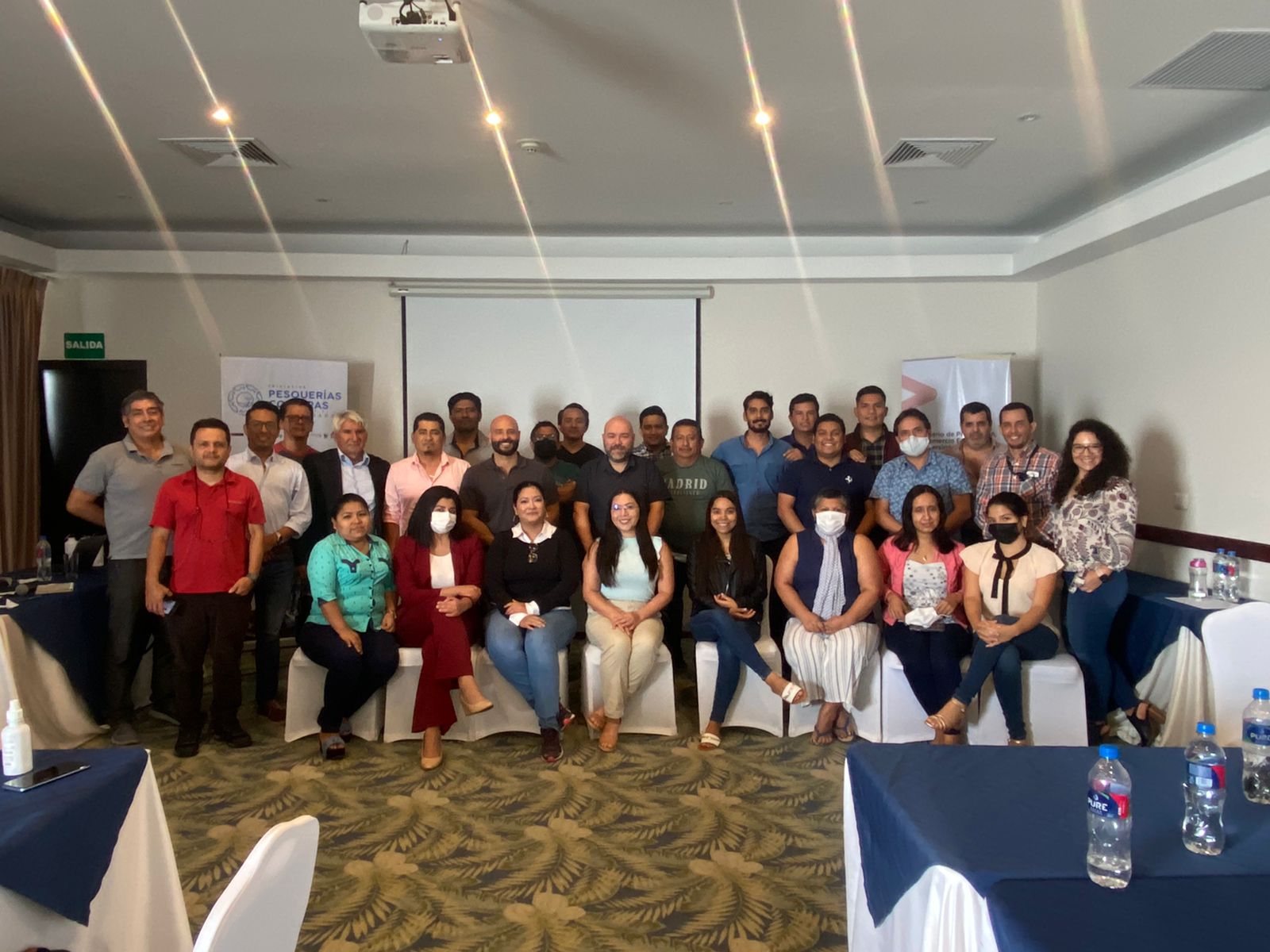The CFI launches international FPAT workshop series
The Fisheries Performance Assessment Toolkit (FPAT) measures the social, economic, ecological and governance dimensions of fisheries
01/06/2022

1 June, Quito/Rome - The FAO Coastal Fisheries Initiative (CFI) has launched a series of workshops on its Fisheries Performance Assessment Toolkit (FPAT), which it developed and piloted in partnership with the University of Washington.
The first workshop took place in Manta, Ecuador from 24-27 May and is to be followed by sessions in Cabo Verde, Côte d'Ivoire, Peru, Senegal and Indonesia.
FPAT requires relevant stakeholders, including fishers, processors, NGOs, gender specialists, and managers, to sit around the table to discuss and agree on scores for a set of indicators covering the "Triple Bottom Line of Sustainability": ecology, economics, and community.
"Workshop participants will gain an understanding of the rationale behind the scoring process, learn how to interpret metrics outcomes and identify useful insights for management," according to Helven Naranjo from the University of Washington, a CFI partner.
 |
"The FPAT is an indicator-based tool that allows for participatory research. It has been demonstrated that this can improve the legitimacy of the decision-making process because it's based on collaboration, engagement, and mutual arrangements," he explained.
Who, what, when, where and how much
Managing a fishery means making decisions about who gets to fish, what species they can target, where and when they can do so, and how much of it they are allowed to catch. The consequences of those decisions have an impact on fishers and their communities, the economy, and the environment.
"It is therefore important to make decisions based on good quality data and information — ones that can be used to assess the fishery in a multi-dimensional way in order to achieve as many desired outcomes as possible," said Nicolás Gutiérrez, who is responsible for the FPAT component of the CFI Global Partnership Project (CFI-GPP).
The virtue of FPAT is that "it provides a relatively simple set of tools for assessing the status of fisheries", according to FAO science to policy consultant, Philip Townsley.
"This can help to make comparisons across different fisheries, and to make more appropriate management decisions," he said. "It's not a panacea, but it helps to establish an information base that enables the start of the management process."
The FPAT workshops organized by CFI are designed to increase participants' skill sets and the technical knowledge, and also to share that know-how as widely as possible.
